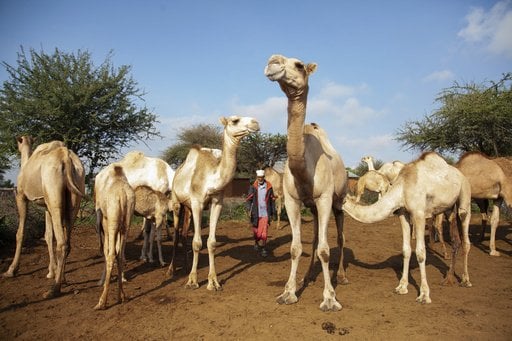
Breaking News: Drought Forces Kenyan Herders to Seek Alternative Livestock
Nairobi, Kenya – March 15, 2023
As the devastating drought continues to grip Kenya, the traditional cattle-herding communities of the Maasai and other pastoralist groups are facing a harsh reality: they must adapt or risk losing their livelihoods. With grazing lands scarce and water reserves dwindling, these herders are being forced to consider alternative livestock to survive.
For centuries, the Maasai people have been synonymous with cattle-herding, with their iconic red robes and elaborate beaded jewelry. However, with the ongoing drought, they are struggling to sustain their traditional way of life. The dry conditions have decimated the country’s grasslands, leaving many herders with limited options for their livestock.
"It’s a crisis, no doubt about it," said Daniel Ole Ntimama, a Maasai elder from Kajiado County. "Our cattle are dying off at an alarming rate. We need to find new ways to feed our families and communities."
In response to the drought, many Maasai herders are turning to fish farming as a means of supplementing their income. Fish ponds are being constructed in rural areas, providing a sustainable source of protein-rich food for the community. Camel farming is also gaining popularity, as these resilient animals are better adapted to the harsh arid conditions.
"Camels are ideal for this environment," explained James Lekipen, a camel breeder from Narok County. "They can go without water for extended periods and can thrive on the dry grasslands. It’s a lucrative business, and we’re seeing many Maasai herders transition to camel farming."
Other communities are also embracing innovative solutions. In Samburu County, beekeeping is gaining popularity as a means of generating income and providing honey for the community. Similarly, in Laikipia County, herders are turning to goat farming as a way to diversify their income streams.
As the drought shows no signs of abating, Kenya’s pastoralist communities are being forced to adapt and innovate in order to survive. With fish and camel farming emerging as viable alternatives, it remains to be seen whether these herders will be able to sustain their traditional way of life.
Key Takeaways:
- Drought forces Maasai and other cattle-herding communities to consider alternative livestock
- Fish farming and camel breeding gaining popularity as sustainable solutions
- Innovative approaches like beekeeping and goat farming being adopted by other communities
- Drought continues to devastate Kenya, threatening the livelihoods of traditional herders
Related Topics:
- Kenya drought
- Maasai herders
- Fish farming
- Camel breeding
- Alternative livestock
- Sustainable farming
- Adaptation to climate change
- Kenyan agriculture
Tags:
- Kenya news
- Drought news
- Climate change news
- Livestock farming
- Sustainable agriculture
- Camel farming
- Fish farming
- Beekeeping
- Goat farming
- Maasai culture
- Traditional herding communities
- Africa news
- East Africa news
- Kenya economy
- Kenyan farmers
Drought forces Kenya's Maasai and other cattle herders to consider fish and camels
https://candorium.com/news/20240904044408907/drought-forces-kenyas-maasai-and-other-cattle-herders-to-consider-fish-and-camels
View info-news.info by 10marketing8

Deep down when you go through the rabbit hole someone in kenya kwisha has swallowed the climate change narrative & now they shove it down thru the innocent maasais with one of the least carbon foot print in the country.The climate change tsars in the western countries are selling the narrative that cattle are produce greenhouse gases.
We can all see maasai community is under assault,their wayy of life, the cattle,where they live.Look at maasai in tanzania they being relocated by force from ngorongoro I think to tanga.
Kenya kwisha goes to 10 yrs we going to charged for breathing.
https://www.reuters.com/business/cop/kenya-climate-change-shrinks-maasai-mara-wildebeest-migration-2022-11-03/
https://apnews.com/article/kenya-maasai-samburu-fish-camels-food-drought-08f4564e3475bcc8ef11afc065005aa1
Climate change is biggest h0axxx of the century.
The gl0balist want y0u and me to eat the bio engineered meat